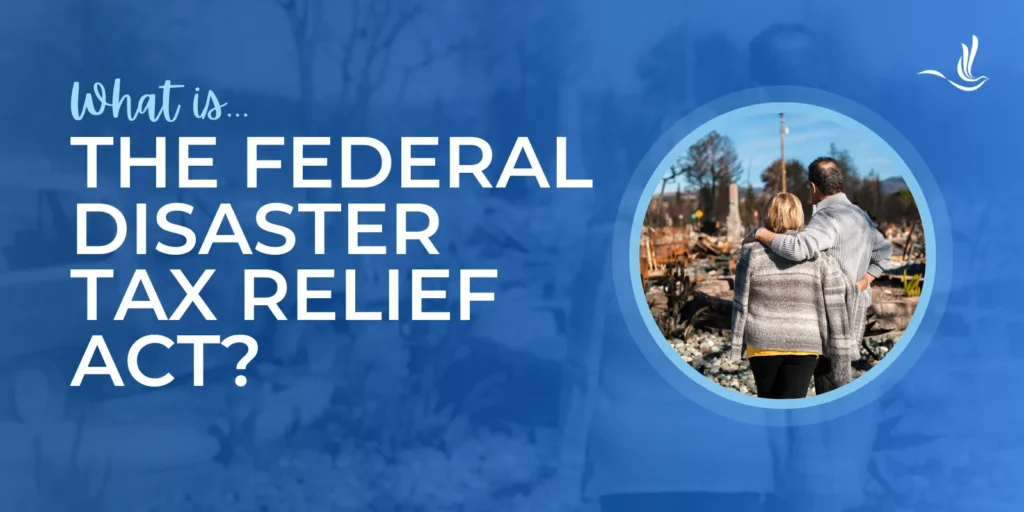The Federal Disaster Tax Relief Act is a legislative measure proposed by the U.S. Congress to provide tax relief and assistance to individuals and businesses affected by natural disasters. This Act is part of a broader effort by the federal government to alleviate the financial burden on those impacted by disasters such as hurricanes, wildfires, floods, and other catastrophic events. Here’s an overview of the Federal Disaster Tax Relief Act that has the potential to offer a range of tax benefits designed to help disaster victims recover and rebuild in the aftermath of such events.
Background
The Federal Disaster Tax Relief Act (HR 5863) was introduced by Representative Greg Steube (R-FL). It advanced by the Ways and Means Committee in 2023. The Federal Disaster Tax Relief Act would exclude income received for casualty and theft losses, damages, and expenses from individual income for tax purposes if these were incurred due to a federally declared disaster. It would also exclude any income received by taxpayers affected by the February 2023 train derailment that took place in East Palestine, Ohio, where 38 train cars carrying hazardous materials derailed.
The bill was passed in the House of Representatives, but the Senate has yet to vote on it. The situation has become tricky since the bill was included in the bipartisan tax package, the Tax Relief for American Families and Workers Act (HR 7024).
Current Disaster-Related Tax Relief
Currently, there are several provisions that offer financial relief to disaster-affected individuals and businesses. One of the primary benefits is the ability for taxpayers to claim deductions for casualty losses. These losses are defined as damage, destruction, or loss of property resulting from a disaster. Taxpayers can claim deductions for uninsured or unreimbursed losses, thereby reducing their taxable income and lowering their overall tax liability. The IRS also typically extends the tax filing and payment deadlines for individuals and businesses in affected areas. This extension provides taxpayers with additional time to complete their tax obligations without facing late fees or penalties.
How the Federal Disaster Tax Relief Act Could Impact Taxpayers
If passed by the Senate, the Federal Disaster Tax Relief Act will exempt wildfire relief payments from federal income taxes. It will also exempt relief payments for losses stemming from the 2023 East Palestine, Ohio train derailment. In addition, it will designate certain hurricanes as eligible for disaster-related tax treatments. If enacted, this act could simplify the process of writing off losses from other natural disasters. This includes provisions to exempt legal fees, emotional distress, lost wages, and other expenses from taxation in cases of wildfire losses. Once the bill becomes law, any taxes already paid on wildfire settlement funds since 2020 will be eligible for a retroactive refund. Taxpayers can claim this by filing an amended return or claiming the change in the next tax year.
Tax Help for Those Affected by Federal Disasters
The Federal Disaster Tax Relief Act could be an essential tool in the federal government’s response to natural disasters. By providing tax relief and financial assistance, the Act can play a crucial role in helping individuals and businesses recover and rebuild in the aftermath of catastrophic events. Understanding the provisions and benefits of the Act can empower taxpayers to make informed decisions. It can also maximize the available relief options in times of need. Optima Tax Relief is the nation’s leading tax resolution firm with over a decade of experience helping taxpayers.
If You Need Tax Help, Contact Us Today for a Free Consultation
Publisher: Source link











